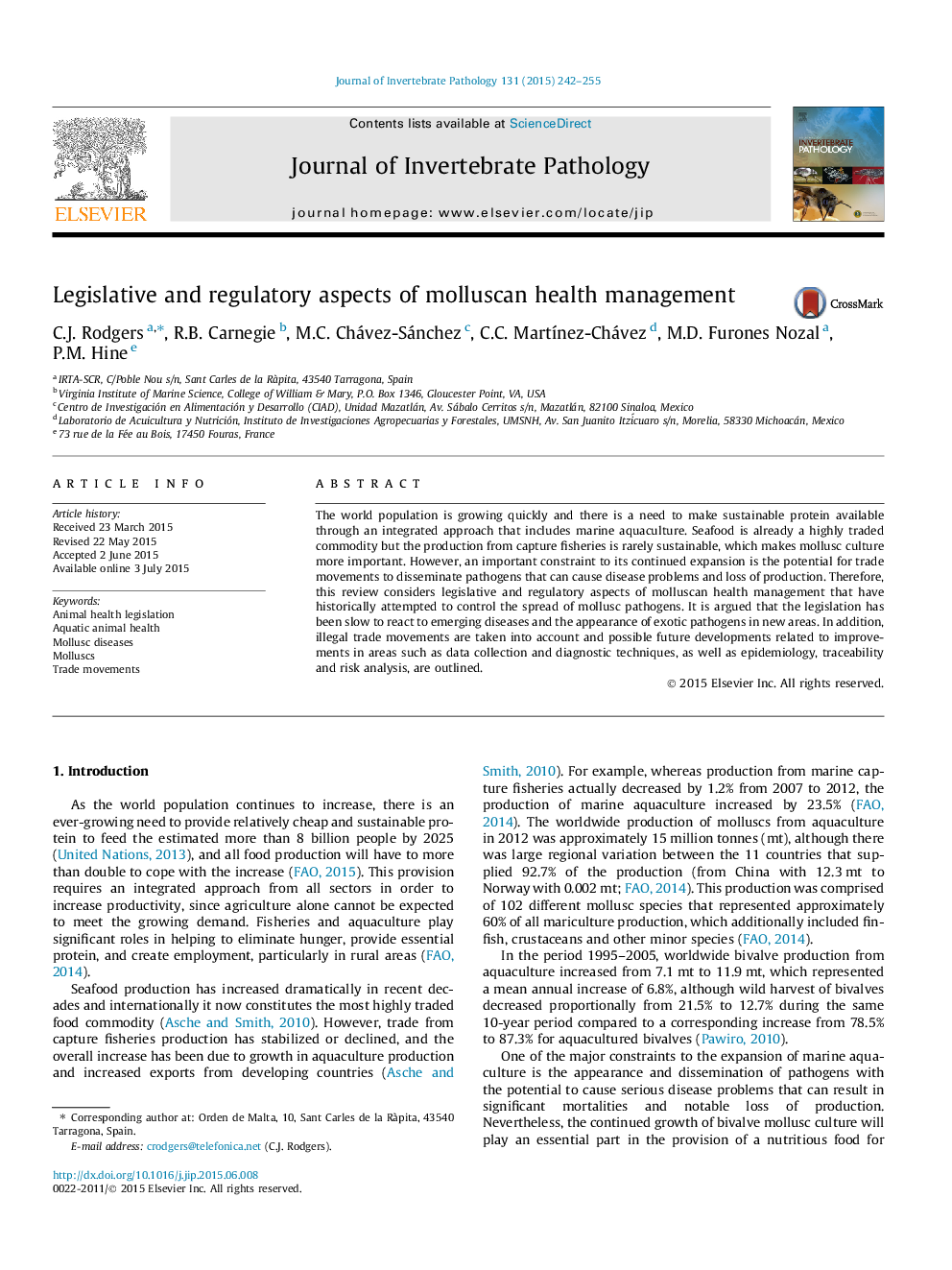| Article ID | Journal | Published Year | Pages | File Type |
|---|---|---|---|---|
| 4557542 | Journal of Invertebrate Pathology | 2015 | 14 Pages |
The world population is growing quickly and there is a need to make sustainable protein available through an integrated approach that includes marine aquaculture. Seafood is already a highly traded commodity but the production from capture fisheries is rarely sustainable, which makes mollusc culture more important. However, an important constraint to its continued expansion is the potential for trade movements to disseminate pathogens that can cause disease problems and loss of production. Therefore, this review considers legislative and regulatory aspects of molluscan health management that have historically attempted to control the spread of mollusc pathogens. It is argued that the legislation has been slow to react to emerging diseases and the appearance of exotic pathogens in new areas. In addition, illegal trade movements are taken into account and possible future developments related to improvements in areas such as data collection and diagnostic techniques, as well as epidemiology, traceability and risk analysis, are outlined.
Graphical abstractFigure optionsDownload full-size imageDownload as PowerPoint slide
